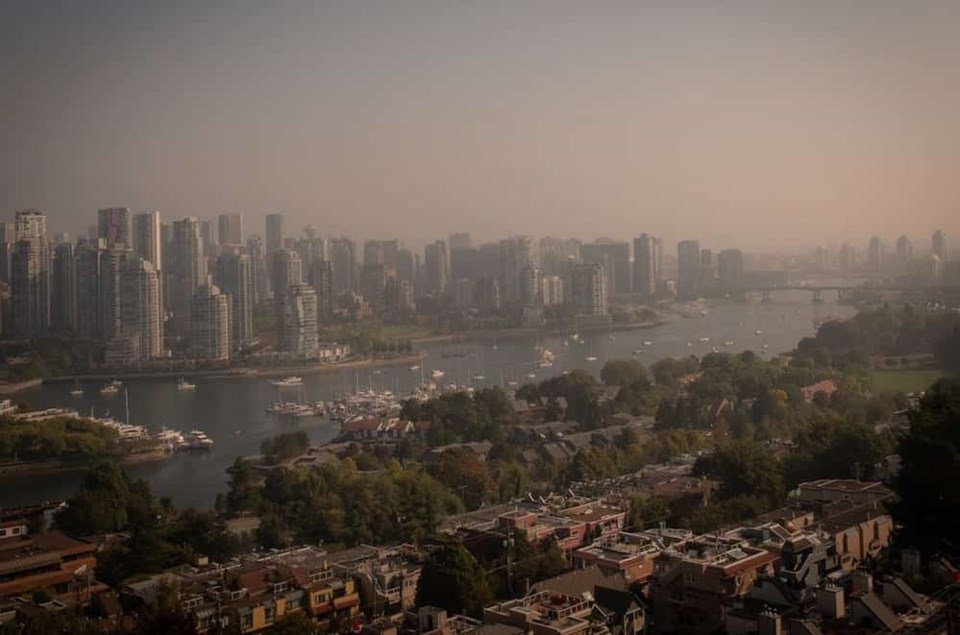Environment Canada has issued a special weather statement for the eighth day in a row for Metro Â鶹´«Ã½Ó³»due to a number of wildfires burning south of the border.
Metro Â鶹´«Ã½Ó³»is continuing the fine particulate matter advisory that has been in effect since Sept. 8 for Metro Â鶹´«Ã½Ó³»and the Fraser Valley Regional District due to wildfire smoke from outside the region. Wildfire smoke from fires in Washington and Oregon continues to persist in the region.
According to the weather federal weather forecaster, there is a slight improvement in air quality today but ground-level smoke will remain, and possibly until later this week.
Localized smoke concentrations may expected to vary widely across the region as winds and temperatures change, and as wildfire behaviour changes.
Special air quality statement in effect for:
- Metro Â鶹´«Ã½Ó³»- NE
- Metro Â鶹´«Ã½Ó³»- NW
- Metro Â鶹´«Ã½Ó³»- SE
- Metro Â鶹´«Ã½Ó³»- SW
Fine particulate matter, also known as PM2.5, refers to airborne solid or liquid droplets with a diameter of 2.5 micrometres (µm) or less. PM2.5 can easily penetrate indoors because of its small size.
Persons with chronic underlying medical conditions or acute infections such as COVID-19 should postpone or reduce outdoor physical activity until the advisory is lifted, especially if breathing feels uncomfortable. Exposure to PM2.5 is particularly a concern for people with underlying conditions such as lung disease, heart disease, chronic obstructive pulmonary disease (COPD), asthma, and/or diabetes, individuals with respiratory infections such as COVID-19, pregnant women and infants, children, and older adults. Individuals who are socially marginalized may also be at elevated risk.
As we are in the summer season with warm temperatures, it is also important to stay cool and hydrated. Indoor spaces with HEPA air cleaner filtration and air conditioning may offer relief from both heat and air pollution, but physical distancing guidelines for COVID-19 should still be observed. If you are experiencing symptoms such as chest discomfort, shortness of breath, coughing or wheezing, seek prompt medical attention. Call 9-1-1 in the case of an emergency.
If you're feeling unwell these days, your first thought might be to get tested for the novel coronavirus. However, wildfires burning south of the border have created poor air quality in the Lower Mainland, which can cause a range of health effects. Read more on how to tell the difference, here.
For a way to comprehend the effects of the wildfire smoke, an app called Sh**t! I Smoke converts air quality into the number of cigarettes a person will 'smoke' in a day simply by breathing the air.



